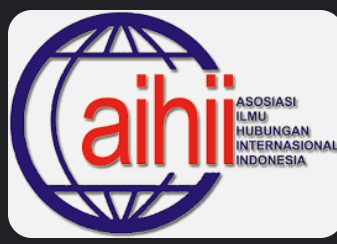Renewable Energy Policy as Indonesia's Energy Security Strategy
DOI:
https://doi.org/10.33822/mjihi.v5i1.4108Keywords:
Renewable Energy, Constructivist, Climate Change, Energy SecurityAbstract
Indonesia has the potential of abundant natural resources that made the country a global energy producer before, but because of the dwindling energy reserves owned makes the position reversed and caused Indonesia’s policy to have energy supply from other countries, besides the high utilization of fossil energy in Indonesia has much impact on environmental damage such as air and water pollution and does not support economic development patterns. Sustainable. For this reason, the Indonesian government needs to improve its policy regulations by focusing on the development and management of new renewable energy as a form of a national resilience strategy and environmental impact reduction. This new renewable energy will be analyzed from 4 dimensions of political considerations in constructivist theory, namely idiographic, purposive, ethics, and instrument, to see if it will be appropriate for Indonesia’s national energy security strategic plan. This research uses qualitative methods that explain the two variables involved in this new renewable energy and energy security and look for reasons for the need to include the concept of renewable energy in the national energy security policy strategy, with qualitative data collection techniques and library literature sources and interview results of related quotations. The results of the four-dimensional analysis will explain that the concept of renewable energy ideas is a social construction that can be a policy recommendation in the field of energy for the government to maintain the availability of energy supply in the strategic issue of national energy security
Keywords: Renewable Energy, Constructivist, Climate Change, Energy Security
References
Asghar, Zahid. (2008). Energy-GDP Relationship: A Causal Analysis For The Five Countries of South Asia. Economics and International Development Journal. Vol 8-1, pp.168-180.
Asian Development Bank. (2020). Renewable Energy Tariffs and Incentives in Indonesia. Manila: Philippines
Azhar, Muhammad et al. (2018). Implementation of New Energy and Renewable Energy Policy in the Framework of National Energy Security. Administrative Law & Governance Journal. Vol 1 no 04, pp 398-412.
Azmi, Riza, et al. 2014. Energy Security: Concepts, Policies, and Challenges for Indonesia. Fiscal Risk Info Bulletin. Vol 1. pp 3-11. Retrieved: https://www.kemenkeu.go.id/sites/defult/files/energy%20security.pdf.
Compass. (2016). Resilience-Energy-Indonesia-Slumped.
Dewan Energi Nasional. (2014). National Energy Council report. Jakarta: National Energy Council of the Republic of Indonesia.
ESDM, K. (2010). 2010 report. Jakarta: Ministry of Esdm.
Friedberg, Aaron L. 2018. Globalization and Chinese Grand Strategy. Survival: Global Politics and Strategy. Vol 60 no 1, pp 7-40.
Gilpin, R., & Gilpin, J. (2001). Global Political Economy Understanding the International Economic Order. New Jersey: PPrincetonUniversity Press.
Goldthau, Andreas. (2013). The Entanglement of Energy grand strategy and international security. Held, David. Handbook of Global Policy Series. pp.30. UK: John Wiley & Sons Ltd.
Gonzales, Bosch et al. 2009. Energy Use and Energy Efficiency: Reducing energy consumption in university buildings. Improvement of Energy Project. Retrieved:https://upcommons.upc.edu/bitstream/handle/2117/24142/363_Energy_use_and_energy_efficiency_The_way_to_reduce_energy_consumption_in_university_buildings.pdf
GSI. (2018). Missing the 23 percent Target: Roadblocks to developing renewable energy in Indonesia. IISD.
GSI. (2019). Beyond Fossil Fuels: Indonesia's Fiscal Transition. Canada: Global Subsidies Initiative Report.
Hikmat, N. (2016, Dec. Impact of U.S. Shale Gas Boom in 2009 and Italy-Russia Negotiations From 2011 to 2014. Retrieved from http://repository.unpar.ac.id/bitstream/handle/123456789/2246/Cover%20-%20Bab%201%20-%203312123sc-p.pdf?sequence=1&isAllowed=y:
IESR. (2019). Indonesia Clean Energy Outlook (Review report Of Clean Energy Development in Indonesia). Jakarta: Indonesia
Kasali, R. (2018). Self Disruption. Bandung: Mizan Main Media.
M.Lauranti. (2017). Fes-Indonesia. Accessed from Indonesia: www.fes-indonesia.org
Muhadjir, N. (2000). Education and Social Change. Yogyakarta:Raka Sarasin
Mukhammadsidiqov, Mukhammadolim, (2020). The Influence Of The Energy Factor on Modern International Relations. The American Journal of Political Science Law and Criminology. Vol 5, pp 5-15.
Pickford, Andrew. 2017. China's Grand Strategy and Energy. Perth USAsia Centre. Vol 3. Pp 3-18.
Poppy Winanti, R. N. (2020, March). Retrieved Energy Diplomacy from Research Gate:https://www.researchgate.net/publication/340161773_Diplomasi_Energi_Indonesia
Prasetyono. (2008). Indonesia's position in the Global Energy political vortex. Indonesia Perspective. Vol 3 No. 1. pp 215-216.
Rachmat, A. N. (2018). Indonesia is in the Global Energy Political Vortex. Indonesia Perspective, Vol 3 No 1. pp 66-78.
Resosudarmo, B. (2010, Jan. Energy Security in Indonesia. Retrieved from https://www.researchgate.net/publication/254440925:http://rspas.anu.edu.au/economics/publications.php
Sugiyono, Agus. 2015. Current Energy Issues and Policies. Accessed from Research Gate: https://www.researchgate.net/publication/275645319
Syahrul Aiman, et al. 2018. Indonesia Renewable Energy Report APCTT-UNESCAP. Accessed from Researchgate: https://www.researchgate.net/publication/325284532
TPSA. (2019). The Increasing Role of Renewable Energy in Indonesia's Electricity Sector. Canada: TPSA Reports
Umah, A. (2001). CNBC Indonesia. Accessed: https://www.cnbcindonesia.com/news/20210107201945-4-214363/mau-bebas-impor-bbm-ri-kudu-punya-terobosan-nih
Zhao, Suisheng. 2008. China's Global Search For Energy Security: Cooperation and Competition in the Asia Pacific. Journal of Contemporary China. Vol 5:55 p.m. pp 207-227.




